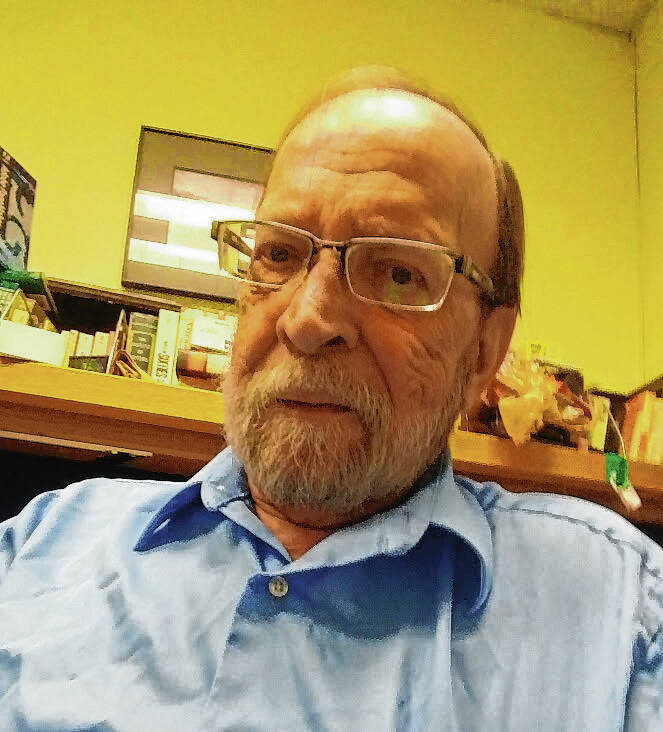
Leo Morris
It is time to announce the winner of the prestigious and soon-to-be coveted Reno Prize, which starting this year will be awarded to honor the most creative theft from citizens by their government.
It should have been an easy choice since the Indiana General Assembly is in full swing. As the saying goes, “No man’s life, liberty or property are safe while the legislature is in session.”
But lawmakers have let us down, conducting a humdrum session filled mostly with business as usual.
A budget that will spend much more than the last one with the usual padding for fraud, abuse and incompetence built in. Billions held in reserve instead of being returned to the taxpayers it was taken from. Backroom deals with well-heeled lobbyists that will benefit small groups of Hoosiers at the expense of the overall citizenry.
Theft, certainly, legal if sometimes sneaky and often audacious, but nothing truly unusual. Nothing creative enough to merit the Reno Prize.
So we must turn to the executive branch, in whose many divisions faceless and nameless bureaucrats work tirelessly without the harsh glare of scrutiny to demonstrate that “public service” means showing the pesky public just who’s boss. They know what they can get away with, and they can cite chapter and verse of the state laws allowing them to do it.
And so we have a winner.
The first annual Reno Prize goes to … imagine drumroll here … The Indiana Bureau of Motor Vehicles.
According to an investigation by WRTV of Indianapolis, the BMV makes millions by selling Hoosiers’ personal information, and it is not required by law to tell us they are doing it. In a practice that has been going on for years, the bureau offers up information to the highest bidders for our birth dates, addresses and past addresses, odometer readings, what kinds of cars we drive and even our license plate numbers.
In the last 10 years, the bureau has realized nearly $240 million from the sales, and in 2022 alone, it made $25 million.
People who can buy the information include lawyers, bail bondsmen, private investigators, insurance agents and debt collection agencies. There are supposed to be restrictions on how the information is used. Third-party marketers aren’t supposed to use it to directly solicit us, for example. But we all know that once our information is out there, it is out there forever.
So the BMV is exploiting the state’s citizens by joining in the theft of their precious privacy, so fragile in the digital age. And it is profiting from giving out those citizens’ information, which can then be used against them in myriad ways.
Truly breathtaking, eminently worthy of recognition.
If you are thinking about Googling more information about the Reno Prize, by the way, don’t bother. I made it up.
It pays tribute to the Reno brothers, a hardy band of innovators from Rockford in southern Indiana’s Jackson County, whose band of robbers terrorized the Midwest shortly after the Civil War by perfecting the concept of train robbery.
There were train robberies before the Renos, of course, but the crooks were stupid about it. Not as stupid as what you might have seen in old Westerns in which the scoundrels chased down the train on horseback, but thoughtless nonetheless.
Before the Renos, robbers did their deeds while the trains were idling at their stations. This soon became problematic, what with all the people, including law enforcement representatives, milling about.
The Reno brothers’ brilliant twist was to buy tickets and ride on the trains until they got to the middle of nowhere, which trains tend to do, then go quickly about their nefarious business with no pushy interventions by the law. The simple elegance of their plan quickly caught on and was emulated by train robbers across the country.
What an inspired modification it was. Riding the train as ordinary passengers, looking just like all the other ordinary passengers until it was time to strike. Not unlike today’s government workers, who look just like the rest of us until — well, you get the idea.
Alas, criminals who repeat the same patterns often get caught. Aided by Pinkerton agents hired by the railroads, authorities kept arresting members of the Reno brothers’ gang. But outraged mobs kept taking them away from authorities and hanging them from the nearest tree, 10 of them in three separate incidents, all in 1868. True genius is seldom appreciated in its own time.
A sad fact that it is hoped the Reno Prize will help us avoid in this time.
Leo Morris is a columnist for Indiana Policy Review. Contact him at [email protected].
